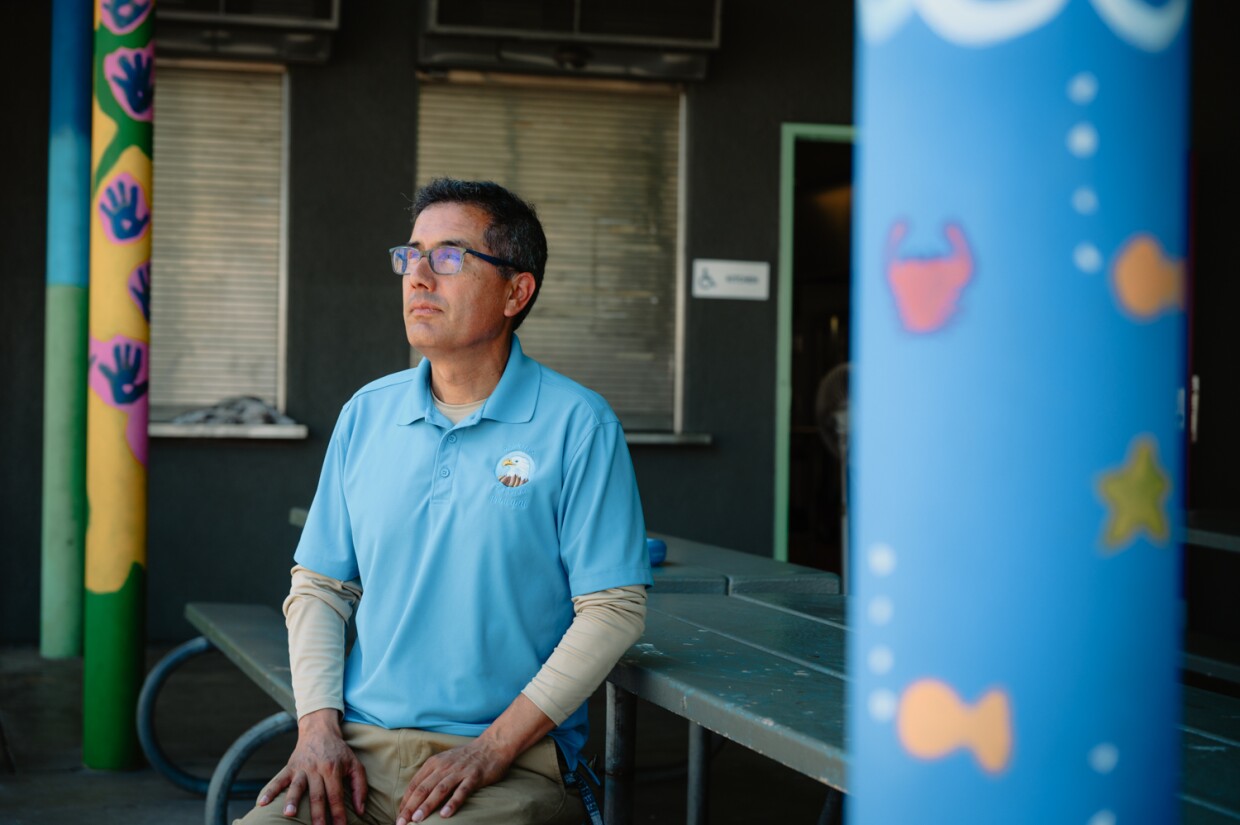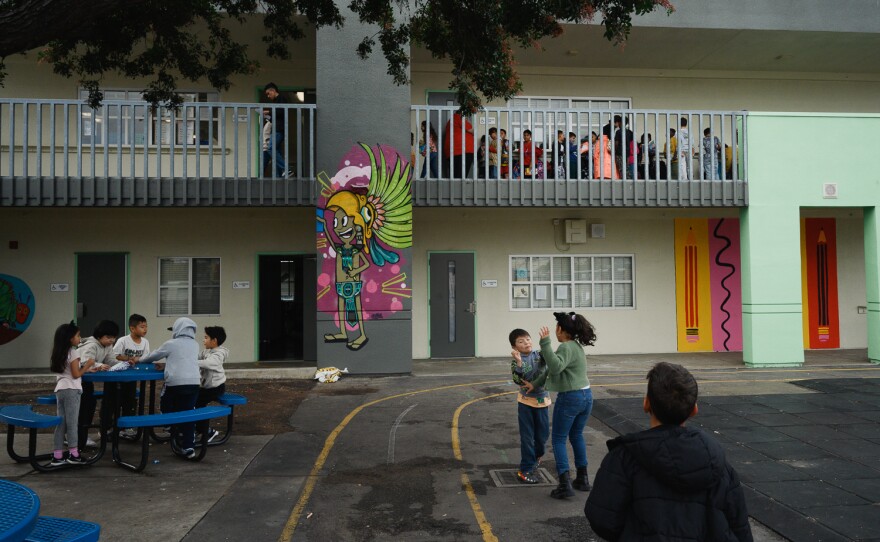As the school year gets underway, elementary students across California are supposed to be getting a certain amount of time during the school day for free play.
That’s because of a new state law that recognizes the importance of play to young kids’ growth and social skills. It requires schools to set aside a minimum of 30 minutes every day for free and unstructured recess, starting this fall.
But for some schools, one factor is already making that complicated: extreme heat.
As temperatures spiked across Southern California earlier this week, staff at Perkins K-8 school in San Diego did the only thing that made sense: they kept kids indoors and turned up the air conditioning.
Their primary goal, Principal Fernando Hernandez said, is to keep students safe. Younger children are more vulnerable to extreme heat because they become dehydrated faster and don’t always have the judgment skills to control their physical activity, according to the U.S. Environmental Protection Agency.
“They're so excited to either play soccer or play foursquare or play any of the other outdoor games, regardless of how hot it is,” Hernandez said. “We have to watch over them because they don't necessarily watch over themselves.”
Indoors, students are safe from the heat. But they aren’t necessarily getting that unstructured recess time that’s now required by state law.
That’s because it’s a challenge to let kids play freely inside a classroom, Hernandez argues. In that setting, he said, teachers often need to rely on more organized activities like computer games, drawing, or painting.
“Teachers still like to keep some structure to make sure it doesn't get out of control inside of a classroom,” Hernandez said. “Where materials, furniture, things are still kept in place.”

Because of that, teachers at Perkins all have their own way of handling indoor recess time. Some allow their students to play games, while others use the time to get ahead on their lessons.
Several teachers at Perkins did give their students five minutes or so to run around outside during the recent heat wave. But they felt it was too hot to let them stay outside for very long.
California’s new recess law, which went into effect for the first time this fall, is meant to protect access to play. A growing number of researchers say free play time is crucial for children to develop key social skills and an internal sense of agency.
But that’s creating a new conflict for many schools, which are being caught between two priorities: helping students develop and keeping them safe.
Extreme heat events fueled by human-driven climate change have rippled across the nation this summer — the hottest on record for the northern hemisphere, according to the National Oceanic and Atmospheric Association.
In San Diego County, climate change is expected to lead to more frequent heat waves in the coming years that last longer and are more intense. State officials expect heat-related illnesses and deaths to increase significantly.

During heat events, San Diego Unified School District’s official guidelines advise schools to restrict recess time to “quiet games that require a minimum of physical exertion.” But they don’t include any other instructions about how to manage the new recess requirements.
In a statement Thursday afternoon, district spokesperson Samer Naji reiterated the district’s guidelines.
“Safety is the priority,” Naji wrote over email.
Hernandez is a strong supporter of the new state mandate for unstructured recess. He agrees that time is essential to developing social skills, and thinks educators should be thinking about how to balance that with staying safe.
But Hernandez isn’t looking to the district or state education officials for answers. Since every school is built differently and experiences different weather patterns, he thinks they should decide how to handle heat waves.
“Some schools have a huge auditorium or a huge gym where they can provide free and unstructured recess time,” he said. “Smaller schools like Perkins … we have to maintain some sort of structure in order to prevent chaos from happening.”
As heat events become more frequent in San Diego, Hernandez said the staff and Perkins will likely need to come together to formalize a protocol for handling recess on hot days. Especially as climate change makes heat waves more frequent and more intense.






